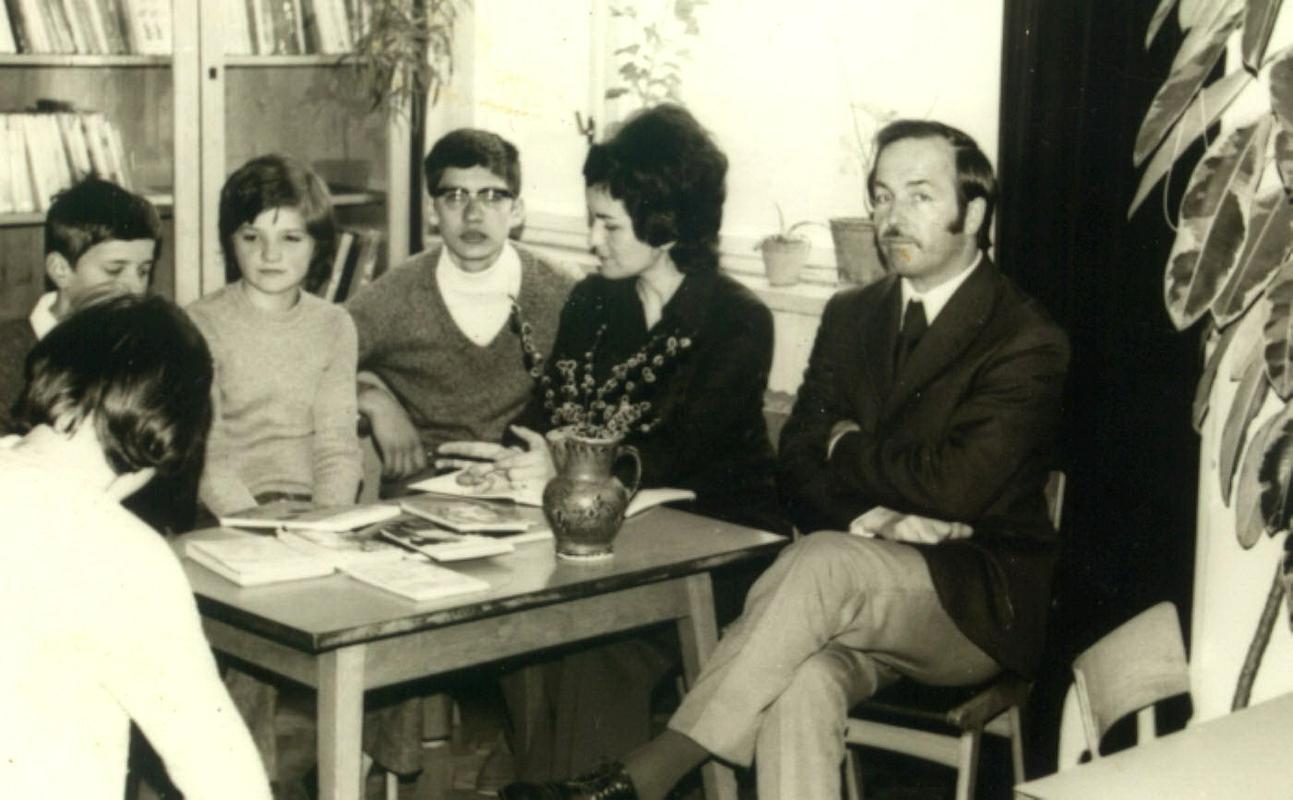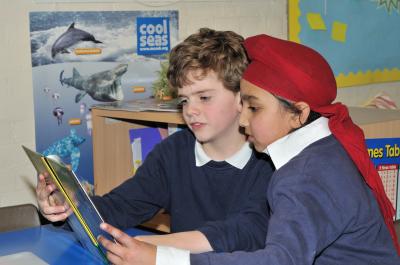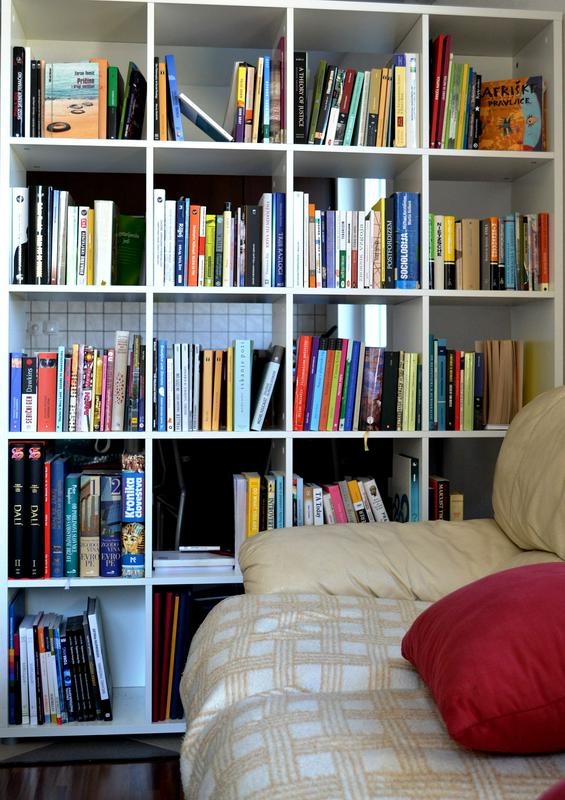




The expansion of the reading culture among the masses in Europe was undoubtedly influenced by the invention of the movable type printing system by Johannes Gutenberg in the 15th century. He created the first mass media of the new age in the form of leaflets, religious books and the whole Bible. He introduced the era of journalism, which gained importance in the following centuries. The invention of the print went hand in hand with the development of Europe's Reformation and Protestant movement, which backed the principle that everyone should read the holy book alone.
In the region of today's Slovenia Primož Trubar was the most active figure in the development of the culture of reading. In 1550 he published his Catechism, which was entitled Catechismus in der windischen sprach. In the same year he prepared a short Abecedarium, as he realized that people first had to learn the basics of reading and writing.
In the 20th century the level of education and reading culture increased. Slovenian schools started to encourage reading by giving out reading badges. The badges were founded by writer Leopold Suhodolčan and Professor Stanko Kotnik at the elementary school in Prevalje. The first – Prežih badges – were awarded in May 1961 in the Koroška region.
In the beginning of the 90s a motivation program was added to the movement. It was called S knjigo v svet (With a book to the world), which later also became the reading badge slogan. Leopold Suhodolčan wrote about the reading badge: "A great idea, to develop the thought that apart from »I have to«, there also exists »I wish to« and »I want to«. That is why the reading badge campaign is deeply humanistic." In 2002 the reading badge movement organized itself into an independent Reading Badge Slovenia Association. The association states that every year in all their programs "more than 140.000 children take part and read Slovenian books". The Reading Badge is now present in 99 percent of Slovenia’s elementary schools. 75 percent of all elementary school pupils take part in the reading.
Primož Suhodolčan, a writer of books for children and youth, is of opinion that the reading habits of the young change the same way as feelings, perception and interests change. "It is impossible and senseless for someone to decide for the young what’s good to read and what’s not. You can recommend, and adequately explain your decision, but not decide for them,' Suhodolčan explains. He personally recommends reading which sets the reader and his imagination free. He also recommends reading out of curiosity, which encourages behaviour and knowledge."
We also read ads, not only books
With the further development of media technology, the 21st century has blown some fresh air into our reading culture. We read less and less long and complex texts, which focus on one theme only and demand much time and thought. With the Internet, the new social networks, and short advertisements and journalistic slogans, we've learned to read fast. Our new ability is accompanied by a superficial perception of information. Many times the rule that applies for the modern reader is: more short, fast and diverse information. The question you might ask yourself is, are we, as readers, still capable of long, demanding and in-depth reading?
Primož Suhodolčan is confident: "For sure! The book might very well change its state of matter and form, but the story will still be most important. And if the story's good and draws attention, it will still be read, scanned and saved in our brain's hard disc. Whether the book has 1000 pages or a few megabytes will be of no relevance."
We can't say that we read less. Words follow us everywhere we go. We read differently than before and we read different things. We read 'take-away' slogans flashing in the corners of our computer screens. Those of you who use social networks can do a test and count how many short news messages you read in just one day on Facebook. Let's also add the movie subtitles, SMS text messages, emails, newspaper articles, cooking recipes, school newsletters and school books or work material. Even if it sounds funny, on a daily basis we read a lot. The only thing that has changed is the content and the way we read. On their own, the new web tools we have are neither good nor bad. What is important is the way we use them.
Life becomes boring without stories
A well accepted fact is that reading books makes you open-minded and gives you knowledge. And those are skills which help us become independent, and will help us in many battles in life. A poet, translator and professor at the Faculty of Social Sciences, PhD Aleš Debeljak talked about the importance of the culture of reading and books: "The Slovenian state was born out of culture, or in other words, out of the soul of songs. And a book is the best representative the soul of songs has. The book has historically been reputed as a metaphor for cultural creativity. The book holds a special place in the collective images of Slovenians. There are two reasons for that: history and metaphysics. Literature maintains its reputation because Slovenia's public still remembers the decisive importance Slovenia's literary tradition had in the establishing of our independent state. At the same time the public also realizes the metaphysical presumptions, which reach beyond the current times of crisis: it realizes that life becomes boring without stories, and that without yearning and poetry, man becomes dull. In other words: a man without culture, meaning without a wide collection of stories, becomes susceptible to only one thing. To that which is enforced on him by the authorities."
Books all over the globe are our allies in spreading education, science, culture and information. And what are good books? "Good books are those books which remain in the reader's consciousness. Even more, good books are those which remain in the consciousness of a whole generation. And if they remain in the minds of several generations, they're all the more better," concludes Primož Suhodolčan.


































































